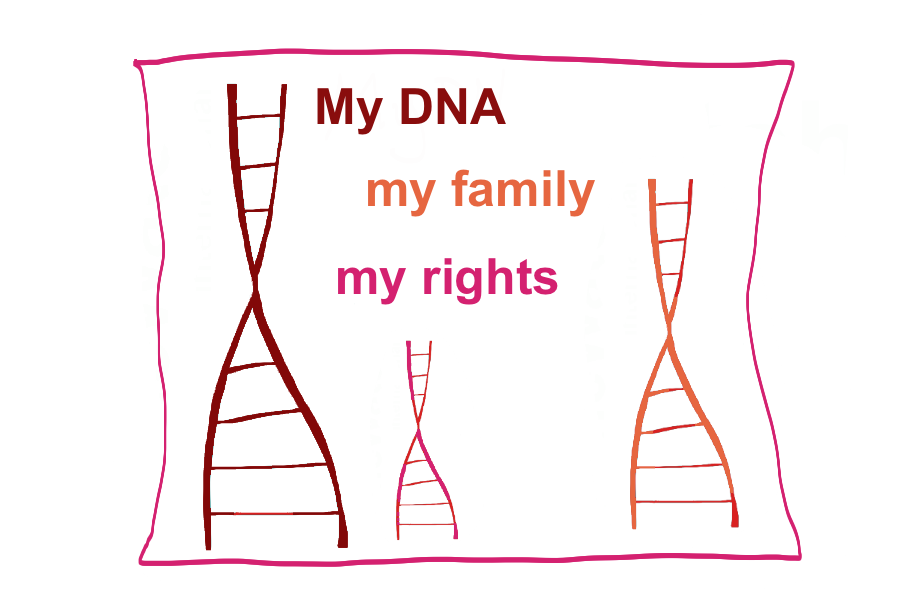DNA testing at borders has become more of an issue recently, prompting human rights concerns for immigrants and those seeking refuge or asylum, with regard to state surveillance and discrimination against marginalised groups. In many countries, citizenship is associated with certain rights, including the ability to work, vote, and access economic and social benefits such as healthcare and education. Collection of DNA at borders thus has implications not just for genetic privacy, but also much broader human rights issues relating to citizenship and nationality.
DNA testing at borders is supported by the development of rapid DNA testing techniques, and the increasing size of commercial DNA databases that can be mined for data. As the technologies and data evolve, the ability to implement DNA testing at borders is becoming increasingly feasible.
In the US, DNA testing was first introduced to verify family connections for immigration purposes in 2000. For such cases, DNA testing is voluntary, though immigration officers are allowed to suggest testing be performed if other evidence of family relations is deemed insufficient, or is unavailable, for example birth certificates. Since 2018, DNA testing has been used when reuniting thousands of children separated from their families at the border under the ‘separation’ policy, in order to charge parents with illegal entry. This policy moved the focus to DNA testing as the go-to method to prove relations rather than relying on alternative means such as gathering paperwork. Little public information has been published on how such DNA would be stored and retained. Unfortunately, it remains unclear if all children were successfully reunited with their families. Although the separation policy has now ended, voluntary rapid DNA testing has since continued for proving family relations. Compulsory DNA collection is also performed by US immigration control for people seeking refugee status and seeking asylum from 13 specified countries: Afghanistan, Burundi, Central African Republic, Cuba, Democratic People’s Republic of Korea, Democratic republic of Congo, El Salvador, Eritrea, Ethiopia, Guatemala, Honduras, Iran, Iraq, Mali, Somalia, South Sudan, Sudan, Syria. In 2020, laws went into effect that require DNA collection from immigration detainees, which is stored in the Federal Bureau of Investigation’s (FBI) criminal DNA database, despite these people not committing a crime.
In the UK, DNA testing is not mandatory, but there have been cases where DNA testing was nonetheless illegally demanded. In 2009, the UK government piloted ‘The Human Provenance Pilot Project’. Under this project, people seeking asylum in the UK were asked to provide DNA evidence of geographical ancestry, for example proof that Somali asylum seekers arriving from other countries, were indeed Somali. To do this, ancestry testing was performed to attempt to identify people’s nationality, despite deep scepticism from geneticists on the scientific basis of such a program. It is a basic misconception that someone’s genetics would align with any national border. Following extensive criticism of the program, it was later cancelled. In 2018, it also became evident that immigration decision-makers were mandating DNA based evidence for immigration purposes, despite a lack of legal power to do so. It has since been clarified that while DNA evidence can be used to prove family connections, such DNA evidence cannot be asked for, or required for immigration decisions. However, voluntary testing can be submitted to assist the application, encouraging applicants to pay for costly tests.
In Canada, immigration authorities are utilising data from commercial genealogy DNA testing companies and ancestry websites to attempt to determine migrants’ nationality (see Commercial DNA tests section and Resource section for more details on the accuracy of ancestry tests), despite ancestry tests being unable to identify an individual’s nationality which is determined by man-made borders, and not biology.
An illustrative example is a case where authorities cited DNA testing and an ancestry website to speculate that a Liberian man who had lived in Canada for decades, was actually from Nigeria. His lawyers were further concerned with the lack of consent, where DNA is being demanded from people while being detained in a maximum security prison. With Liberia refusing to accept repatriated individuals, Canadian authorities were looking elsewhere to deport people to. The practice was conducted without the explicit collaboration of the commercial DNA companies, exposing the ability of authorities to gain access to private genetic information.
In the EU, DNA testing is allowed for reunification of families, and in some countries such as Spain, it is widespread. There is also an individual ongoing case of a stateless person living in the EU since childhood but unable to gain refugee status due to lack of nationality. Ancestry tests were sought by her attorney to attempt to identify a nationality that can classify the migrant as a refugee. However, genetic ancestry tests are not a reliable means to determine nationality.
In Israel, it was revealed by media in 2013 that DNA was being taken from immigrants arriving from African countries. A police request to collect DNA samples was already rejected by government, but police later collected samples anyway. The police did this by charging immigrants with illegal entry, thus justifying taking DNA as part of a ‘security-related’ crime.
A state-sponsored project in Thailand was launched in the early 2010s to sponsor relationship testing for families to provide evidence of Thai descent, though no formal process appears to have been established.
